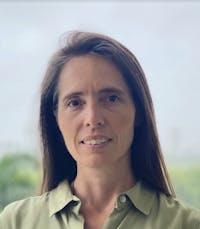New research highlights the disproportionate risk to Indigenous territories from industrial extraction
- Nature Conservation
- Land Conservation
- Indigenous Tenure
- Recycle & Reuse
- Amazonia
- Southern America Realm
Indigenous Peoples' lands across the globe are increasingly under pressure from extractive industries and development projects. Although only 6.2% of the global population, Indigenous Peoples govern and steward 39% of Earth's most ecologically intact lands. A new paper, supported by One Earth, entitled “Indigenous Peoples’ lands are threatened by industrial development..” shows the extent to which these lands could be converted to various forms of industrial use, undermining global goals to solve the twin crises of climate change and biodiversity loss. The paper points out that Indigenous Peoples are the best stewards of their lands, and their knowledge is vital to preserving ecosystems worldwide.
The largest drivers of developmental pressure on Indigenous Peoples’ land are energy infrastructure, commercial agriculture, mining, and urbanization. The study mapped how these different pressures (Figure 1) interact with socio-economic and political contexts. Regions were ranked on a novel “Rights-Representation-Capital” Index to assess the strength of Indigenous People's rights to their lands, their representation in decision-making processes, and their access to capital to support their ongoing stewardship. These frameworks were created to identify strategic actions and investments that could best support Indigenous governance and self-determination.
.png)
Figure 1. Conversion threat to Indigenous Peoples’ land (A–D) Intersection of Indigenous Peoples’ lands with (A) ecological condition proxied by human modification (HM) of terrestrial lands; (B) industrial development pressure derived from development pressure indices mapping the suitability of land for commercial agriculture, mining, fossil fuels, renewables, and urbanization; (C) conversion threat based on the multiplication of the maps in (A) and (B); and (D) drivers of high industrial development pressure.
Brandie Fariss, co-lead author and conservation social scientist at TNC, said:
The scientists suggest a range of approaches, including advocacy for structural, institutional, corporate, and policy change at the global level and direct actions to strengthen Indigenous Peoples' rights to their territories and resources at the community level. They also emphasize the importance of centering Indigenous Peoples' rights and leadership in global efforts to address biodiversity loss and climate change.
Indigenous Peoples are being pressured on every side by extractive industries. Strengthening and recognizing their rights and autonomy to their territories is essential if we are to achieve the 30x30 goal of the UN Kunming-Montreal Global Biodiversity Framework, which calls on governments to collectively protect at least 30% of the Earth’s lands, inland waters, coasts, and oceans. Fostering the self-determination of Indigenous Peoples and centering their leadership is necessary to achieve this goal.
This coming October 10-12, Indigenous Peoples from Latin America and the Caribbean will have the opportunity to attend the VIII Regional Forum on Business and Human Rights. The Forum is organized by the Office of the United Nations High Commissioner for Human Rights and the UN Working Group on Business and Human Rights and supported by several institutions and foundations from Europe as well as UNEP and UN Global Compact.
According to the organizers, it brings together representatives of State institutions, companies, trade unions, civil society organizations, Indigenous Peoples, women and local communities, think tanks, legal professionals, investors, international and regional organizations, National Contact Points for Responsible Business Conduct, National Human Rights Institutions, academia and media. It is a multi-stakeholder platform for the exchange of good practices and peer-to-peer learning on human rights and business activities in the region.
The main objective of the VIII Regional Forum is to “discuss opportunities, challenges and practices to prevent, mitigate and address adverse human rights impacts related to business activity, in particular in relation to environmental impacts.”
The agenda aims to discuss, among other points, “how to strengthen the just energy transition agenda, balancing the importance it presents for the environment and the protection of human rights; an agenda in which Latin America plays a central role related to the minerals needed to make it a reality.”
Indeed, as we make the leap to a fossil-free era, think tanks, brand-building strategists, and corporations must accept the fact that extractive-based economies are no longer an option because of the state of fragility of our planet. We must recycle, upcycle, and repurpose what has already been extracted, improve resource use efficiency, and, most importantly, invest in human well-being within the biosphere’s limits. Indigenous Peoples have the know-how and experience to maintain bioregion resiliency and to guide humanity into a way of living that is regenerative and restorative of our only home, Earth.
.jpg?auto=compress%2Cformat&w=1440)



